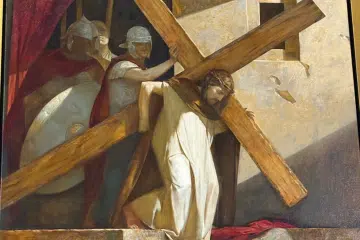Set Aside Time for the Eucharist
As I pondered what to say about the Eucharist for this issue of the magazine, I found that I was at a loss for words—I mean that both figuratively and literally. What can I possibly say that those well versed in the study of the Eucharist and theology have not already said?
I turned to the Word on Fire podcasts—my go-to for deeper insight on both Catholic and worldly topics. While scanning through their archives, I landed on Episode 387: “It’s Time for Eucharistic Revival.” Perfect, I thought. Cincinnati will host the nationwide Eucharistic procession for several days in July before it continues on to its final stop at the Eucharistic Congress in Indianapolis.
I jumped into the episode, intent on better preparing myself for the upcoming events. (That is our purpose with this issue of the magazine: helping readers get in a Eucharistic mindset prior to the Eucharistic Congress).
Several points struck me as I listened, particularly the Eucharistic Revival’s origins. The idea began when Bishop Robert Barron addressed the PEW study indicating that many Catholics don’t believe in the Real Presence of the Eucharist; instead, they see it as bread and wine merely symbolic of Jesus’ Body and Blood. Although Bishop Barron initially led the United States Conference of Catholic Bishops’ work on the Eucharistic Revival, he soon handed over the reins to Bishop Andrew Cozzens (who wrote “The Final Word” on page 42 of this issue). The bishops agreed that action is needed to help share the Church’s Eucharistic teachings and to help American Catholics better understand Eucharistic language.
Bishop Barron said, “The Eucharist is the source and summit of the Christian life. So it’s the center, it’s the beginning and the end of Christian life. It’s the Real Presence of Jesus, Body, Blood, Soul and Divinity. … In other words, this side of the eschaton, there’s nothing more important to us than the Eucharist” (WOF Ep. 387)
He spoke about how the Eucharist embodies the transcendentals of our faith: the good, beautiful and true. Emphasizing that one is not more important than the other (despite our best efforts to place emphasis on one above the other, he said we should instead work toward having an “integrated sense of the Eucharist.”
As we continue in this Eucharistic Revival through next year, intentionally set aside time: time praying before the Eucharist; time learning more about the Eucharist and its centrality to our faith; time reading more about how the Eucharist has enriched the faith of others; and time taking part in this nationwide commitment to the Eucharist. I hope that this issue of the magazine helps inspire you in all of these things.














